Continuing the tradition of exploring cities around the world, a delegation from the Lithuanian Real Estate Development Association (LNTPA) embarked on a captivating journey to Japan this spring. The LNTPA members had the opportunity to visit Tokyo, Osaka, and Kyoto. Japan’s remarkable aesthetics, impeccable organization, warm hospitality, and unwavering commitment to quality impressed the LNTPA delegation.
“A country that remained closed off from the outside world for nearly three years while diligently protecting its population during the COVID-19 outbreak, has finally opened its doors, creating an immense buzz. Since October, we have had the privilege of visiting Japan, and I personally know friends who have made the journey multiple times within a span of six months. Prior to our trip, Japan seemed such a mystical and unattainable destination and how good it was to unveil this myth,” says Mindaugas Statulevičius, Head of LNTPA.
“We were truly impressed by the diverse range of things: from the incorporation of innovative technologies in real estate planning, development, and management, to the enchanting cherry blossoms in full bloom, Japanese gardens, impeccably clean spaces, and highly developed infrastructure, existing within a society that embraces liberal values and democracy. It’s an environment where unwritten yet effective rules exist,” states Mindaugas Velička, Head of Etapas Group, which is the member of LNTPA.
The LNTPA delegation was privileged to meet with and attend a presentation by Mitsui Fudosan, one of Japan’s prominent real estate development companies. The focus of the presentation was the revitalization and transformation of the Nihonbashi district, located in the heart of Tokyo. The delegation had the opportunity to learn about the guiding principles behind this project.
“Land is the most expensive asset in Japan. Renting lands is a common phenomenon in Tokyo. Buildings in the capital have a relatively short lifespan, typically lasting several decades. As a result, investments in both land and buildings must generate substantial returns and profitability for investors, because after the scheduled deadline, the building will be demolished and a new one will be built in its place. This practice serves as a potential stimulus for the construction sector and the overall internal economy,” says Amelija Rudenko, representative of Kapitel, another member company of LNTPA.
“Unlike here in Lithuania, there are no sentimental attachments to buildings and their facades in Japan. The utmost value lies in the plot of land itself, as it will consistently hold greater worth than any structure erected upon it,” adds M. Statulevičius.
According to the prevailing regulations in Japan, there is a limited service life for buildings. In the country known as the Land of the Rising Sun, buildings depreciate over time and are eventually replaced. Typically, wooden structures are demolished after approximately 20 years, while concrete buildings have a lifespan of around 30 years.
A slightly different approach is taken in the city of Kyoto, one of the former capitals of Japan. The objects within and surrounding the old city of Kyoto are included in the UNESCO World Heritage List and are protected.
During the LNTPA delegation’s visit, the representatives from the Tokyo City Hall warmly welcomed them and introduced the principles of the preparation of the general city plan. Additionally, they emphasized the swiftness with which construction coordination processes are executed in.
“The general city plan is prepared for a period of 50 years, but it is adapted to the needs of the city much more often. In comparison, the general plans of major Lithuanian cities are developed for 7‑10 years. What surprised me the most was the speed of coordinating projects and issuing building permits: the process usually takes 2-3 months! Considering the size of the city of Tokyo and the construction of extremely high-quality buildings, this is impressive. A fundamental challenge faced by the authorities of the Tokyo city in faster coordination of projects is the verification of the building’s seismic safety and resistance to external factors (fire, typhoons, earthquakes). It is a logical and necessary step, but everything is done in order to bring the product to the market as soon as possible. We should apply similar principles here in Lithuania”, says the Head of LNTPA.
In Japan, the factors determining the value of housing differ from the Lithuanian real estate market: “We were surprised to discover that metro stops have a distinct impact on the value of homes. The closer a home is to a metro stop, the greater its value in Japan. The view outside their windows is not as crucial for the Japanese as the proximity to the subway, because the majority of movement occurs underground, where it is fast, safe, and, above all, low in pollution. The system is incredibly comfortable, functional, and as precise as Swiss watches,” M. Statulevičius shared.
While speaking about the housing prices in Tokyo and comparing the Japanese real estate market with the situation in Lithuania, A. Rudenko notes: “Housing prices in Tokyo, both for purchase and rent, are quite high. Consequently, a significant number of Japanese people reside in small apartments, dedicating much of their time to work and enjoying their leisure in the city. Having visited Japan, I am once again convinced that the Lithuanian real estate market is distinguished by its high quality, innovation, sustainability, and modern technological solutions. We truly have many reasons to be proud.”
LNTPA constantly strives to create the greatest added value for its members, regularly arranges exclusive tours to cities renowned for their exceptional quality of life and urban advancements, often documented in books. These tours aim to unravel the secrets behind the success of these cities. LNTPA delegations have already visited New York, Toronto, London, Copenhagen, Amsterdam, Warsaw, Dubai, and the aforementioned Tokyo.
